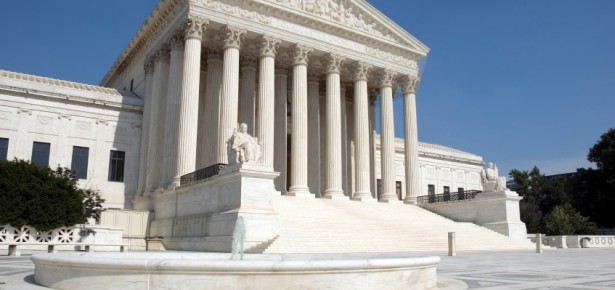
Today, the Supreme Court has rendered a win for employers and a loss for taxpayers. Closely-held corporations (over 80% of U.S. corporations) may invoke RFRA to craft their benefit policies according to their owners’ religious beliefs. And, if the government has accommodated religious entities, that accommodation must be extended to for-profit corporations. The employees will have their contraception needs paid by the government (aka the taxpayers).
The time has come to repeal RFRA and to restore the country to common sense religious liberty under the First Amendment.
It is refreshing to read Justice Alito’s majority decision go to great extremes to distinguish RFRA from the First Amendment. In the text, the majority notes that when RFRA was re-enacted in 2000, along with the Religious Land Use and Institutionalized Persons Act (“RLUIPA”), that Congress engaged in an “obvious effort to effect a complete separation from First Amendment case law.” Then in a footnote, the majority states plainly: “RFRA did more than merely restore the balancing test used in the Sherbert line of cases; it provided even broader protection for religious liberty than was available under those decisions.” Thank you!
Anyone who has been arguing that RFRA actually “restores” the First Amendment’s doctrine pre-Employment Div. v. Smith can now desist. It was never true, but RFRA’s proponents have hidden behind the word “Restoration” in Congress and thte states to hide their actual, extreme agenda.
The element of RFRA that transforms religious “liberty” into a right to impose one’s religious beliefs on others, as here, is the “least restrictive means test.” In this case, the government lost because it could not satisfy the least restrictive means test. Why? Because the government had already accommodated religious corporations. The fact it had provided some accommodation to anyone meant that there is a less restrictive means of accommodating these corporations: the same accommodation! The government pays, instead of the corporations.
As I argue in God vs. the Gavel: The Perils of Extreme Religious Liberty, RFRA is not the doctrine that guided our country for centuries and the least restrictive means test was never the Supreme Court’s test. It is, however, an invitation to religious overreaching.
RFRA is an extreme standard that persuaded a Congress in 1993 that did not do its homework to follow along. The time has come to repeal RFRA and to restore the country to common sense religious liberty under the First Amendment. #repealRFRA
Marci A. Hamilton
(215) 353-8984
A revised second edition of God vs. the Gavel, including a discussion of the Hobby Lobby decision and its impact on the move toward extreme religious liberty in America, will be available this fall.
Latest Comments
Have your say!